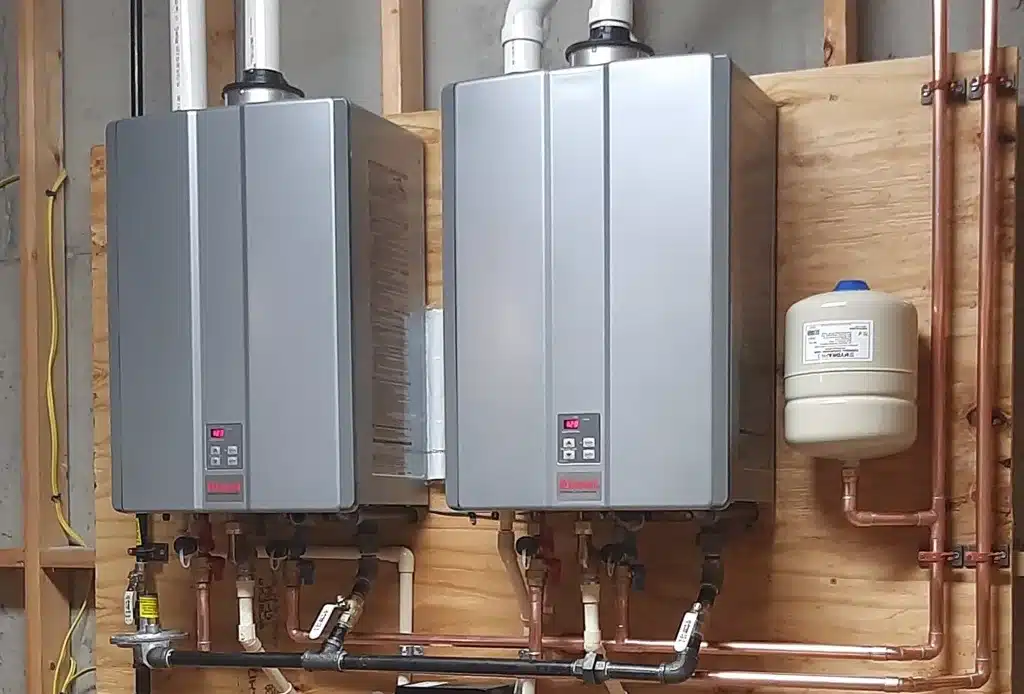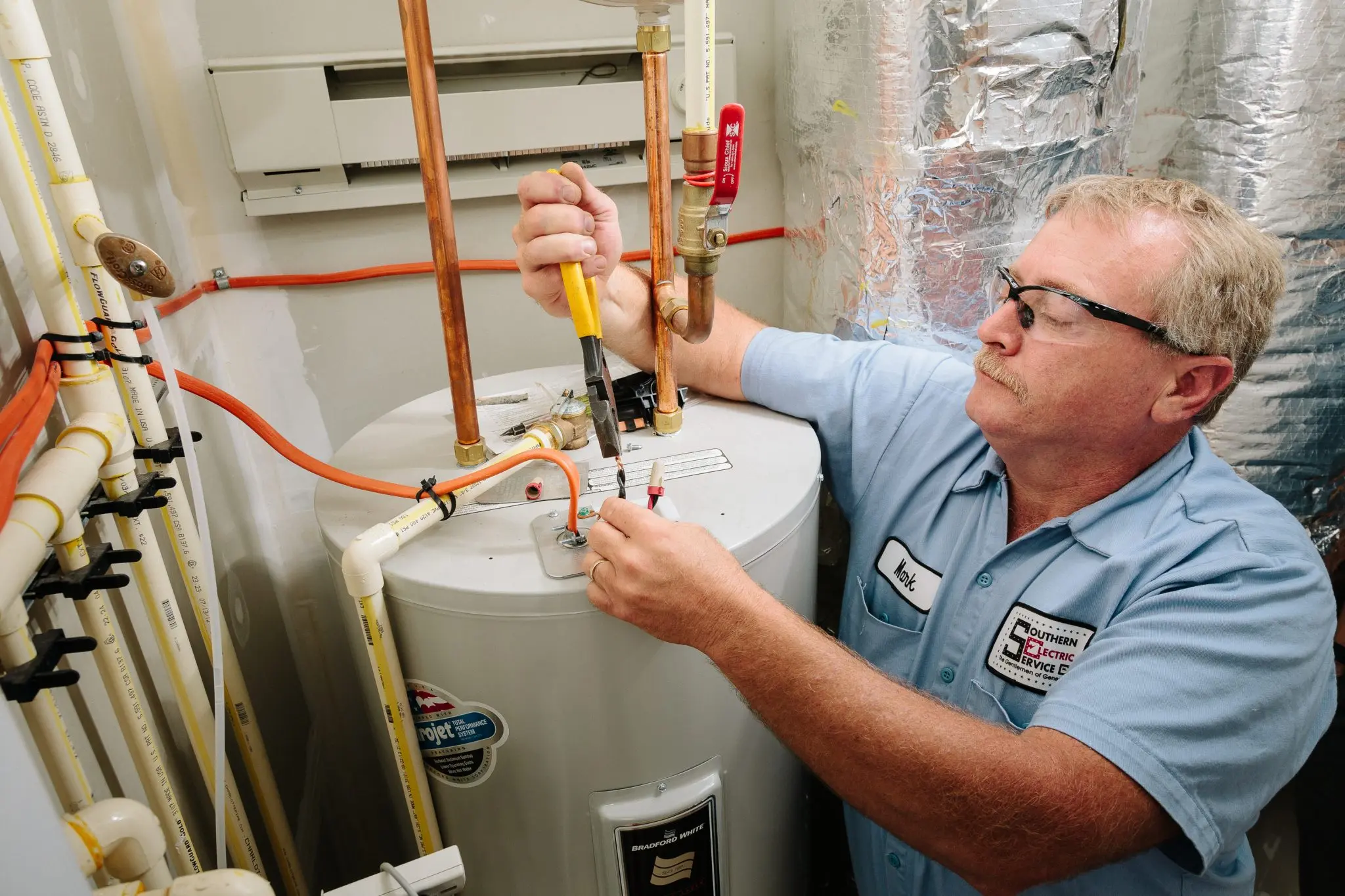Gas Leak Repair by Certified Technicians for Maximum Peace of Mind
Gas Leak Repair by Certified Technicians for Maximum Peace of Mind
Blog Article
Full Overview to Water HeaterInstallation and Substitute
Recognizing the details of hot water heater installation and replacement is important for home owners looking for to make certain effectiveness and reliability in their warm water supply. From picking the proper type and dimension to executing a seamless setup procedure, a number of variables should be taken into consideration to stay clear of usual challenges. This guide will give you with the necessary steps and insights to browse the complexities of this home enhancement job, while likewise emphasizing essential maintenance techniques that can prolong the life of your system. As you check out these aspects, you might find yourself reassessing your existing configuration and determining areas for renovation.
Sorts Of Hot Water Heater
When thinking about hot water heater installment and substitute, it is vital to understand the various kinds of hot water heater offered out there. One of the most typical types consist of container water heaters, tankless water heaters, warm pump hot water heater, and solar hot water heater.
Container water heaters are standard systems that store a particular quantity of warm water, making them readily offered when required. They are typically more economical upfront yet may sustain greater energy expenses in time because of warm loss. In comparison, tankless hot water heater offer warm water on demand, eliminating the requirement for storage space. They are energy reliable and can conserve space, but their first expenses are commonly greater.
Warm pump hot water heater utilize electrical power to move heat from the air or ground to warmth water, offering substantial power cost savings yet requiring more area and particular installment problems. Solar water heating units harness solar power to heat water, offering an environmentally friendly option with potential long-term price savings, although they commonly call for a backup system for cloudy days.
Understanding these options makes sure informed decisions pertaining to setup and substitute, accommodating details needs and choices.
Selecting the Right Size
Picking the appropriate size for a hot water heater is critical to make sure ideal performance and effectiveness. An unit that is also tiny will have a hard time to meet home demands, bring about irregular warm water availability and boosted energy intake. Alternatively, an oversized hot water heater can cause unnecessary power waste and greater utility expenses.
To figure out the right dimension, consider the family's peak warm water use. This can be computed based on the variety of passengers and their typical hot water demands. A family of 4 may require a water heater with an ability of 50 to 80 gallons, depending on the use patterns, such as synchronised showers and laundry.
Additionally, assess the recovery rate, which measures how rapidly a heating unit can renew hot water after it has actually been made use of. For tankless models, concentrate on the flow rate, determined in gallons per minute (GPM), to ensure it fulfills the house's simultaneous demand.

Installation Refine Summary

Next, the old system should be original site separated and gotten rid of, taking treatment to comply with regional codes and laws pertaining to disposal. Once the old system is out, the brand-new hot water heater can be positioned in position. This step involves linking the water supply lines, ensuring that all fittings are safe and secure and leak-free.
After developing water connections, it's necessary to connect the power supply, whether electrical or gas, complying with the producer's instructions meticulously. As soon their explanation as all connections are made, the system ought to be filled with water, and the power can be turned back on. It's important to examine for leakages and guarantee the water heating system is operating properly before completing the setup process.
Typical Setup Blunders

One more frequent mistake is ignoring to comply with local codes and policies. Stopping working to stick to these requirements can not just lead to safety threats however may additionally lead to pricey penalties or the need for costly reinstallation. In addition, inappropriate venting is a crucial issue. Poor air flow can trigger hazardous gas buildup, presenting major wellness dangers.
Stopping working to secure connections or making use of the wrong type of installations can lead to leakages and water damages. By staying clear of these common installment blunders, home owners can ensure their water heater runs safely and successfully, maximizing efficiency and longevity.
Upkeep Tips for Longevity
Correct upkeep of a hot water heater is essential for its longevity and ideal performance. Normal evaluations and maintenance can prevent pricey repairs and expand the device's lifespan. Begin by inspecting the temperature level setting; it ought to usually be established between 120 ° F and 140 ° F for optimal power performance and safety.
Every six months, flush the tank to get rid of sediment accumulation, which can impair home heating efficiency and trigger corrosion. To do this, transform off the heating unit, connect a hose to the drain valve, and allow the water run up until it is clear.
When they are rusted,Anode poles should be evaluated every year and replaced. These rods help prevent tank deterioration by drawing in destructive elements in the water.
Additionally, inspect the pressure alleviation valve routinely to ensure it is functioning properly. This valve is important for stopping excessive stress build-up within the container.
Lastly, think about setting up a professional maintenance check every few years for detailed examinations and maintenance. By adhering to these maintenance pointers, homeowners can dramatically boost the effectiveness, security, and lifespan of their hot water heater, ensuring reliable warm water for many years to come.
Conclusion
In conclusion, proper installment and upkeep of water heaters Home Page are crucial for making certain effectiveness and durability (gas leak repair). Selecting the suitable type and dimension, sticking to setup guidelines, and preventing typical mistakes considerably add to optimum efficiency. Regular upkeep checks and professional maintenance assistance endure performance and stop expensive fixings. By understanding these vital facets, home owners can attain a trustworthy warm water supply while lessening prospective problems associated to hot water heater procedure.
Recognizing the details of water heating system installment and replacement is essential for property owners seeking to make certain effectiveness and reliability in their hot water supply.Storage tank water heaters are typical systems that store a particular volume of hot water, making them easily offered when needed. In contrast, tankless water heating units give hot water on demand, getting rid of the need for storage. Choosing a water heater that is either as well tiny or as well big can lead to ineffectiveness, resulting in poor warm water supply or extreme energy intake.
By comprehending these important aspects, home owners can achieve a reliable warm water supply while minimizing prospective issues associated to water heating unit procedure. gas leak repair.
Report this page